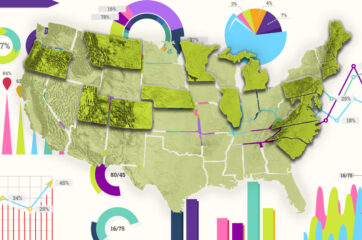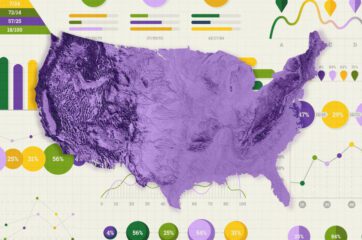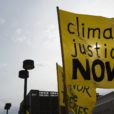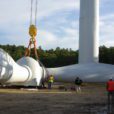Climate XChange partnered with RMI on updating their State Climate Scorecards, a project that illustrates the effect current policies will have on climate-aligned emission reduction targets for 20 states. The Scorecards model expected greenhouse gas emission reductions — both economy-wide and across different economic sectors — by 2030 based on a state’s current policy landscape.
States will continue to be major implementers of climate policy, especially with the recent influx of funding from the Infrastructure Investment and Jobs Act and Inflation Reduction Act. Tools like the State Climate Scorecards provide fact-based guidance to policymakers that identify solutions for states to meet climate targets.
Our research team helped RMI develop an up-to-date policy landscape in 20 states using our State Climate Policy Dashboard. Our Dashboard tracks more than 65 state climate policies across all economic sectors and is updated quarterly, providing a comprehensive catalog of state policy information. We used these policy landscapes as inputs in RMI and Energy Innovation’s Energy Policy Simulator state models to project each state’s emissions reductions between now and 2030.
Key Findings
Important note – these projections are tied to goals aligned with the UN’s Nationally Determined Contributions (NDCs), not any mandatory or voluntary targets set by state governments. The Scorecards use a target of state-specific NDC-aligned goals, which if met collectively, would allow the U.S. to be on track to achieve a 50 percent reduction in greenhouse gas emissions below 2005 levels by 2030.
1. On Track: 100 percent to NDC-aligned goal by 2030
Washington is the only state projected to reach an NDC-aligned target with its current set of policies. Note: the state still needs to take further action to meet its own GHG targets, especially in the buildings and industry sectors.
2. Nearly there: Between 80 and 99.9 percent to NDC-aligned goal by 2030
New York, Massachusetts, and Colorado are all on track to meet the target, but need additional action to achieve an NDC-aligned 2030 goal. In particular, all four states need to target reductions in their industrial sectors, and two states (New York and Massachusetts) have more work to do in their buildings sectors in the short term.
3. Making progress: Between 50 and 79.9 percent to NDC-aligned goal by 2030
Illinois, Georgia, Maryland, Michigan, New Jersey, North Carolina, Ohio, and Virginia all fall in the next tier of progress and are trending in the right direction, but have more work to do in hitting NDC-aligned 2030 targets.
4. Lagging behind: Less than 50 percent to NDC-aligned goal by 2030
Arizona, Florida, Iowa, Kansas, Louisiana, Minnesota, Pennsylvania, and Texas are lagging behind — they are less than halfway towards an NDC-aligned 2030 goal or in some cases are increasing emissions. States like Texas and Iowa are making progress due to significant renewable energy buildout, however, an overall lack of climate policies is hindering their progress.
The State of State Climate Ambition Webinar
Interested in learning more about the key findings? Join us for a webinar with our partners at RMI to discuss the findings from their new State Climate Scorecards. In the hour-long webinar, a panel of experts from RMI and Climate XChange will explore how the U.S. landscape of state-level climate policy will help us reach our goals, including which states are leading the charge, what policies are essential to meet emissions reduction targets, and how states can pass ambitious, science-based climate policy to close remaining gaps.
Informing Future Climate Action
The U.S. is on the cusp of real, lasting progress in tackling climate change through state policy solutions. The strength of past policy efforts and scientific research combined with the influx of federal funding give many states the means and opportunity to accelerate their progress. Initiatives like RMI’s State Climate Scorecards are critical for policymakers to make informed decisions in their efforts to achieve climate goals.
To learn more about our work with RMI, register for our webinar on July 19th.









